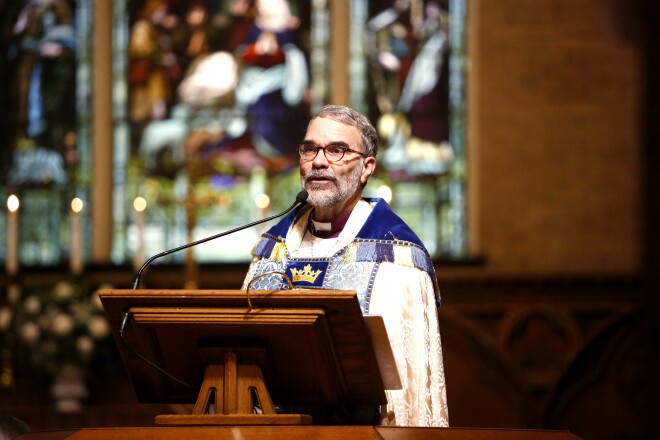Everything Is What It Is

Thinking involves connecting one thing with another, like striking flint for a spark. It works in large measure by analogy. But it only works if you realize that A is different from B, so that comparing the two opens your eyes. Things get confused if we blur the lines, and suppose that they actually are the same thing. Things in the world are indeed related, and yet everything is what it is. In this spirit, I want to offer a few examples from Church life of confusion that results when we lose track of this.
I recently read an article about some of the ideas for revision of the Prayer Book. It is an impressive piece in that it manages to include so many questionable ideas in so compact a space. Trinitarian language too non-inclusive, ‘heaven’ and ‘hell’ too old-fashioned, communion only after baptism too restrictive- lots critical to say there, but for another day. What I want to point-out at present, is the way each proposal supposes that liturgy is a kind of social therapy. It supposedly exists to make us more inclusive, au courant, open minded. But liturgy is actually a structured way for the assembled people of God to hear His Word, offer their prayers, and approach Him sacramentally by virtue of Christ’s death and resurrection. It does so in conscious continuity with our ancestors in the faith and in conscious anticipation of the coming of the Kingdom of God. So let people fight on theologically - we suffer from too-little real theology, not too much. But let liturgy be liturgy, since things are what they are.
For my second example, I want to offer a gnomic utterance by the late Anglican missionary and scholar Stephen Neill: “where everything is mission, nothing is mission.” The tendency to recast all parts of Christian life in terms of mission had an admirable side. Likewise the popularity of the idea of the “mission of God” (the Church doesn’t have a mission, God has a mission, for which there is a church) was trying rightly to put God back at the center of things. But it also pumped so much air into the language of mission that no room remained for actual people being sent in actual mission. But the Church needs mission to be mission so that in its particularity and reality it can serve to remind the Church of something important about itself. If the Church is missional, it may forget the lessons of the time when the Church with energy actually had missionaries who launched missions.
My third example is another example of a good idea, which has been over-inflated like the Michelin man. Practices and institutions exist in relation to others, in a matrix, each with an ecological niche. So a thriving parish has evangelistic efforts, small groups and opportunities to catechize new Christians, adult Christian education. In our tradition these are housed within a parish. In recent decades some of these activities have in many places atrophied, so that many of these activities have only survived during Sunday morning and in the service itself. As a result some who admirably want to renew the Church have reimagined the parish in terms of more informal, mobile small groups. These might be called “missional communities” or be found in a movement like “Fresh Expressions.” These can be signs of life and creative evangelistic efforts. But they aren’t in lieu of parishes - they are akin to the kind of thing that should take place in parishes! Bible studies are bible studies. Small groups meeting in pubs are small groups meeting in pubs. Confusion on this point may distract us from the fact that the Church in the next generation will rise or fall on the recovery of vitality in parishes. And to accomplish this they will need lots of missional groups and fresh expressions of Church within them, not instead of them. Here too things thrive best where we recognize that things can be compared and reimagined, but this takes place best where we understand them to be what they are.
Peace,
+GRS



